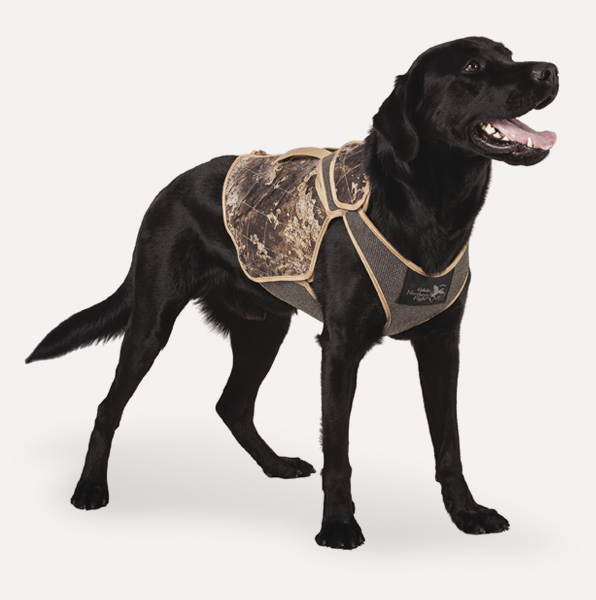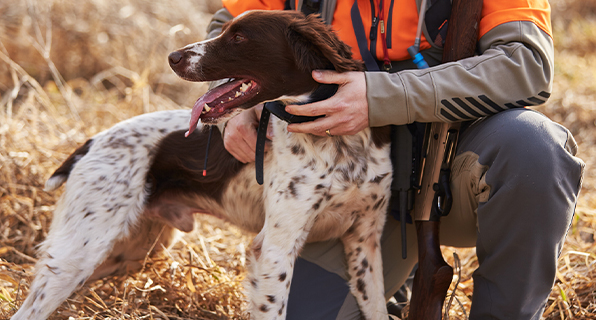Dogs

Hunter’s Best Friend
Hunters have several strategies, but one is as old as humankind: having a dog as their hunting partner. From scanning the skies, to retrieving the fowl, to scenting them, a trusty dog can make all the difference for a hunter. Learn helpful tips from the pros to ensure your hunting dog is safe and sound before, during and after the hunt.
How to Choose a Dog Vest

Understanding Different Kinds of Dog Vests
Working dogs require different kinds of vests based on the terrain they work on. These vests can provide various forms of protection, including shielding, flotation, insulation, and visibility. They are divided into two hunting categories: upland and water.
Upland Dog Vests
Upland dog vests are made of protective nylon-based material to minimize overheating. These vests protect your dog from thorns, spines, and prickles. They usually cover the most vulnerable areas of the dog. The bright colours of orange will help you locate your dog, thus increasing safety.
Water Dog Vests
Waterdog vests are made of neoprene to provide buoyancy, insulation, and protection from sharp objects. It helps your dog to stay afloat and avoid getting tired during long retrieves. Neoprene also protects your dog from thorns and other hazards.
So, whether your dog is on land or water, ensure they stay safe and comfortable with the right vest.
Sizing Tips for Your Dog’s Vest
Two Ways to Measure Your Dog
When you plan on getting a vest for your furry friend, make sure it is comfortable for them! There are two ways to measure your dog for vests: Measuring inches and weight.
Measuring in Inches
When you take measurements, be sure the measuring tape is snug but not too tight. If your dog's dimensions fall between different size classifications, it's usually best to go with the larger size and adjust the vest as needed.
Measuring Weight
If you're unsure what your dog weighs, you can check their vet records or use a bathroom scale. To get an accurate reading, place the back legs on the scale and lift the front legs until all their weight is on the scale.
Pro Tip: If you're putting a vest on your dog for the first time, expect some initial discomfort. Ease your dog into it by introducing the vest at home or in the backyard and distracting them with a fun game until they forget about it. With practice, your dog will get comfortable and wearing the vest will become routine.
If your dog's dimensions fall between different size classifications, it’s usually best to go with the larger size and adjust the vest as needed.
Happy Shopping!
Essential Training Tools for Your Dog
The best kind of training for your dog starts in your yard and not in the blind. Although training your dog can be challenging, it can also be rewarding. Here is a list of some important training equipment to get you started.

Buyer's Guide: Choosing the right dog training collars
Refine your dog's behaviour and skills with the right training collar.
It's the training collar that keeps you connected with your dog while you are on a hunt or in the outdoors. Here's a handy guide to understanding dog training collars and choosing the one that fits your needs.
